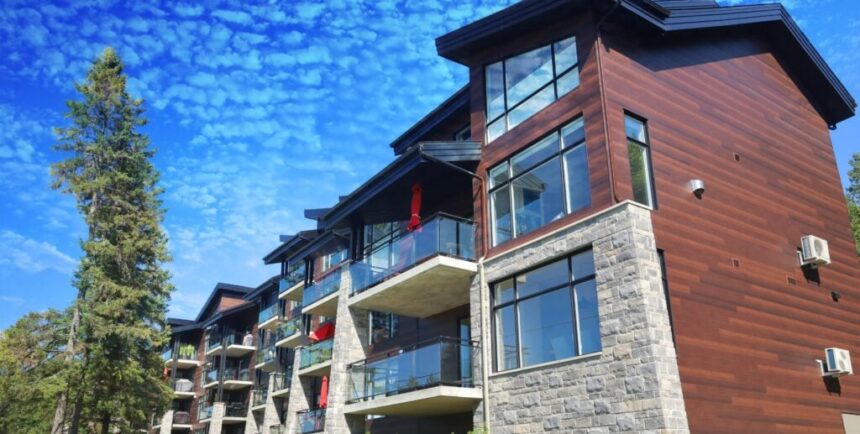Well, 2023 has been another wild year in commercial real estate. The headlines continue to scream trouble for CRE. Many are getting increasingly fantastic.
Some friends are asking me, “So…I hear it’s pretty tough in commercial real estate right now. How are you doing?” You may have wondered the same thing.
Musical Chairs
Have you ever played the game musical chairs? I already knew a lot of syndicators were playing musical chairs with their investors’ capital. I’ve been writing and speaking about that since 2018.
In this update, I didn’t really want to focus on negativity. But when I saw news of yet another multifamily syndicator pausing distributions this week, I was frustrated.
My initial frustration was not necessarily with the operators. Many of them weren’t in the business during the 2008 Great Financial Crisis downturn, so they didn’t know any better.
But that’s not right. Shouldn’t they have known better before accepting tens of millions (or more) of investors’ hard-earned capital?
It seemed clear that overpaying, overleveraging, and liberally using floating-rate debt was like playing musical chairs. And while I love optimism, believing trees (rents) would grow to the sky while operating costs would remain stable amidst inflation and a tight job market was not optimism. I’ll let you decide how to label that behavior.
The bottom line: The music had to stop and leave someone chairless.
I legitimately feel sorry for tens of thousands who invested in deals that have now paused distributions, are calling capital, or are in the process of foreclosure. Though I warned BiggerPockets readers and podcast listeners for several years, there was one big issue I admit I didn’t see coming: increased lender-mandated reserves for rate cap replacements.
Here’s what I’m talking about: A lot of syndicators used floating-rate debt to acquire (often overpriced) properties and bought rate caps to protect against interest rate increases. Of course, no one dreamed interest rates would skyrocket like they did.
These rate cap reserves typically expire in one to two years and must be renewed. In their covenants, lenders have the right to force syndicators to reserve cash flow (that could have been distributed to investors) for upcoming rate cap replacements.
There is nothing devious about this; it is standard business. But these syndicators never expected the increased reserve mandates they got. Some went from $1,000 to $2,000 a month up to $70,000 or $80,000 per month (no, that’s not a typo). This represents an approximately 70-fold increase in some cases!
It’s hard to imagine how many of these GPs are surviving. Especially since:
- Insurance rates skyrocketed for many.
- Rents didn’t increase as projected in many markets and are decreasing in some.
- Overbuilt markets are experiencing incentivization of new tenants (free rents), pulling them away to new developments (properties).
- Expenses continued to rise with inflation.
- Property managers can’t find skilled labor within their budget.
Am I saying I’m any better? Or that my company is better than theirs? No.
I’m not pointing fingers. I made a lot of mistakes in my earlier years. Many of my mistakes helped form the strategy my partner and I followed to build our family of CRE funds.
We’re not immune to problems or surprises. But our due diligence requirements are quite high. The type and amount of debt is a significant item on our checklist.
So, What Are You Investing in Right Now?
Some investors have asked for advice. What do I recommend right now?
I’ll ask you. Are you swimming naked in a receding tide? Or shivering on the beach in a winter coat?
As I stated, a quick scan of real estate investing news reveals a lot of bare skin, as well as reports of many LP investors retreating to the beach. You may choose to sit on the sidelines. But you don’t need to. Sound investments with solid profit potential are available [right] now if you know where to look.
In fact, most professionals look for times like these to provide new acquisition and investment opportunities. When the tide goes out, not only are skinny dippers exposed, but many previously overpriced assets are available at a discount again.
I’m indebted to James Eng at Old Capital Lending for putting together the following analysis.

Eng correlated cap rates for Prime Class A multifamily assets for the past several years. You can see that going in, cap rates were as low as 3.37% in the euphoric stage of April 2022—right before interest rates started rising.
Less than 18 months later, they are reported at 4.92%, over 1.5% higher, which translates to a 46% drop in value for these assets (1.55% / 3.37% = 46%). I don’t believe we are seeing a drop of this magnitude for most assets in the real world.
While there is a significant drop in value in a short time, let’s face it: It could be worse. If cap rates expanded in direct proportion to interest rate rises, which is arguably reasonable, cap rates would be higher, and values would have dropped more. (Another reason we like 10-year holds is that short-term value drops do not impact ultimate results).
I propose that the persistent housing supply-and-demand imbalance continues to prop up multifamily and other housing prices. A recent New York Times piece backs this up, stating that housing prices are “defying gravity.”
Eng believes this points to a current point in the market cycle between “panic” and “despondency” (see cycle chart). Of course, the precise tracking of this important curve cannot be verified yet. These cycles can only be accurately measured in a rearview mirror—in this case, after the point of “hope” is reached or even surpassed.
Though I hate to prognosticate, I believe we are not at that point yet. Based on asking prices from many sellers at this point, I would place us back between “fear” and “panic.”
What do you think? I’d love to hear from you.
So, How Does That Play Out in the Real World?
A simple example of the seller and buyer value disconnect is visible in the realm of mobile home park investments. Some investors in our current fund have wondered why only about 3% of the fund consists of mobile home park acquisitions.
We believe it is because many mobile home park owners (prospective sellers) do not need to sell. Most didn’t acquire their assets in the euphoric period, which motivated multifamily operators to overleverage with risky short-term debt.
With little or no risky leverage, they’re not staring down looming refinance deadlines, so they don’t need to sell. They can hold on to their assets or, if selling, hold firm on their asking price—and they are doing just that.
Here is a picture of the resulting sales volume in 2023:

If we are indeed in the down-trending leg of the cycle, which seems obvious, this tells me we could enjoy significant acquisition opportunities ahead. This means we have not reached low tide yet.
How Can You Pull This Off?
Whether you’re investing on the down leg of the cycle or the up leg—whether you think we’re at the top or the bottom—there are two words you must focus on to assure you’re investing, not speculating: due diligence.
And honestly, I thought due diligence would be easier. When we expanded our due diligence team from my partner and me by adding two more pros, I thought due diligence would get easier, and it would be easier to find new investments.
But as our team and capabilities have grown, so has our expertise. We have a deeper understanding of things that can go wrong. And we recommend you think the same way.
Look deeply at track records, teams, and projects. Check out backgrounds and references. Run worst-case scenarios on underwriting and ask sponsors hard questions. Consider if you want to be in a common equity position with preferred equity and debt in front of you.
Let’s put this in perspective: We are a fund that invests in private commercial real estate deals. We have a great team. And we look deeply at a lot of deals.
We tallied up the operators and deals we evaluated in a recent six-month period. Here are the results:

If you’re about to put your hard-earned capital in the hands of a syndicator or fund manager, ask yourself if you’ve done the level of due diligence it takes to ensure you’re not turning what should be a stable CRE asset into a dangerous speculation.
Ready to succeed in real estate investing? Create a free BiggerPockets account to learn about investment strategies; ask questions and get answers from our community of +2 million members; connect with investor-friendly agents; and so much more.
Mr. Moore is a partner of Wellings Capital Management, LLC, the investment advisor of the Wellings Real Estate Income Fund (WREIF), which is available to accredited investors. Investors should consider the investment objectives, risks, charges, and expenses before investing. For a Private Placement Memorandum (“PPM”) with this and other information about the Wellings Real Estate Income Fund, please call 800-844-2188 or email [email protected]. Read the PPM carefully before investing. Past performance is no guarantee of future results. The information contained in this communication is for information purposes, does not constitute a recommendation, and should not be regarded as an offer to sell or a solicitation of an offer to buy any security in any jurisdiction where such an offer or solicitation would be in violation of any local laws. All investing involves the risk of loss, including a loss of principal. We do not provide tax, accounting, or legal advice, and all investors are advised to consult with their tax, accounting, or legal advisors before investing.
Note By BiggerPockets: These are opinions written by the author and do not necessarily represent the opinions of BiggerPockets.









